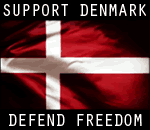μέρος β' από την εφημερίδα ny times:
Follow the Leapin' Leprechaun
There is a huge debate roiling in Europe today over which economic model to follow: the Franco-German shorter-workweek-six-weeks'-vacation-never-fire-anyone-but-high-unemployment social model or the less protected but more innovative, high-employment Anglo-Saxon model preferred by Britain, Ireland and Eastern Europe. It is obvious to me that the Irish-British model is the way of the future, and the only question is when Germany and France will face reality: either they become Ireland or they become museums. That is their real choice over the next few years - it's either the leprechaun way or the Louvre.
Because I am convinced of that, I am also convinced that the German and French political systems will experience real shocks in the coming years as both nations are asked to work harder and embrace either more outsourcing or more young Muslim and Eastern European immigrants to remain competitive.
As an Irish public relations executive in Dublin remarked to me: "How would you like to be the French leader who tells the French people they have to follow Ireland?" Or even worse, Tony Blair!
Just how ugly things could get was demonstrated the other day when Mr. Blair told his E.U. colleagues at the European Parliament that they had to modernize or perish.
"Pro-Chirac French [parliamentarians] skulked at the back of the hall," The Times of London reported. But Jean Quatremer, the veteran Brussels correspondent for the French left-wing newspaper Libération, was quoted by The Times as saying: "For a long time we have been talking about the French social model, as opposed to the horrible Anglo-Saxon model, but we now see that it is our model that is a horror."
Given that Ireland received more foreign direct investment from the U.S. in 2003 than China received from the U.S., the Germans and French may want to take a few tips from the Celtic Tiger. One of the first reforms Ireland instituted was to make it easier to fire people, without having to pay years of severance. Sounds brutal, I know. But the easier it is to fire people, the more willing companies are to hire people.
Harry Kraemer Jr., the former C.E.O. of Baxter International, a medical equipment maker that has made several investments in Ireland, explained that "the energy level, the work ethic, the tax optimization and the flexibility of the labor supply" all made Ireland infinitely more attractive to invest in than France or Germany, where it was enormously costly to let go even one worker. The Irish, he added, had the self-confidence that if they kept their labor laws flexible some jobs would go, but new jobs would keep coming - and that is exactly what has happened.
Ireland is "playing offense," Mr. Kraemer said, while Germany and France are "playing defense," and the more they try to protect every old job, the fewer new ones they attract.
But Ireland has started to play offense in a lot of other ways as well. It initially focused on attracting investments from U.S. high-tech companies by offering them a flexible, educated work force and low corporate taxes. But now, explained Ireland's minister of education, Mary Hanafin, the country has started a campaign to double the number of Ph.D.'s it graduates in science and engineering by 2010, and it has set up various funds to get global companies, and just brainy people, to come to Ireland to do research. Ireland is now actively recruiting Chinese scientists in particular.
"It is good for our own quality students to be mixing with quality students from abroad," Ms. Hanafin said. "Industry will go where the major research goes."
The goal, added the minister for enterprise and trade, Micheal Martin, is to generate more homegrown Irish companies and not just work for others. His ministry recently set up an Enterprise Ireland fund to identify "high-potential Irish start-up companies and give them mentoring and support," and to also nurture mid-size Irish companies into multinationals.
And by the way, because of all the tax revenue and employment the global companies are generating in Ireland, Dublin has been able to increase spending on health care, schools and infrastructure. "You can only do this if you have the income to do it," Deputy Prime Minister Mary Harney said. "You can't have social inclusion without economic success. ... This is how you create the real social Europe."
Germany and France are trying to protect their welfare capitalism with defense. Ireland is generating its own sustainable model of social capitalism by playing offense. I'll bet on the offense.
Παρασκευή, Ιουλίου 01, 2005
ιρλανδία, συνέχεια...
Αναρτήθηκε από pinky and the brain στις 7/01/2005 09:46:00 π.μ.
Εγγραφή σε:
Σχόλια ανάρτησης (Atom)
Blog Archive
-
►
2016
(1)
- ► Φεβρουαρίου (1)
-
►
2012
(1)
- ► Ιανουαρίου (1)
-
►
2011
(21)
- ► Φεβρουαρίου (4)
- ► Ιανουαρίου (4)
-
►
2010
(59)
- ► Δεκεμβρίου (3)
- ► Σεπτεμβρίου (6)
- ► Φεβρουαρίου (5)
- ► Ιανουαρίου (3)
-
►
2009
(79)
- ► Δεκεμβρίου (6)
- ► Σεπτεμβρίου (8)
- ► Φεβρουαρίου (10)
- ► Ιανουαρίου (11)
-
►
2008
(189)
- ► Δεκεμβρίου (24)
- ► Σεπτεμβρίου (17)
- ► Φεβρουαρίου (22)
- ► Ιανουαρίου (15)
-
►
2007
(375)
- ► Δεκεμβρίου (14)
- ► Σεπτεμβρίου (19)
- ► Φεβρουαρίου (46)
- ► Ιανουαρίου (46)
-
►
2006
(499)
- ► Δεκεμβρίου (45)
- ► Σεπτεμβρίου (45)
- ► Φεβρουαρίου (46)
- ► Ιανουαρίου (41)
-
▼
2005
(425)
- ► Δεκεμβρίου (37)
- ► Σεπτεμβρίου (41)
-
▼
Ιουλίου
(49)
- "τι συζητάμε?! σκοτώνουν αθώα παιδιά"
- Εμπρησμοι και σχεδια πολης
- Η υγεια δεν ειναι εμπορευμα
- τι συζητάμε?! they hang homosexuals!
- Ελλάς Ελλήνων Χριστιανών...
- Ο ορισμος της ιδεοληψιας
- Όταν οι μεταρρυθμίσεις είναι πραγματικά φιλελεύθερες
- Ολυμπιακη καταρα
- Η παγκοσμιοποίηση του τρόμου
- Τρομοκρατική παράνοια
- Ερχεται το Διεθνες Πανεπιστημιο
- You cant teach an old dog new tricks
- Ενας Αμερικανος στην Ελλαδα
- Η πολιτική οικονομία των στρατιωτικών εξοπλισμών
- Το προβλημα των Ελληνων
- Καποιος να συμμαζεψει το εθνικο συμβουλιο λογοκρισ...
- Μια κοινωνία σε ομηρεία
- Γενετικά τροποποιημένα τρόφιμα και οικολογία: Υπάρ...
- The enemy within
- O κοιμώμενος γίγαντας αλλάζει πλευρό
- Για το ωράριο των καταστημάτων
- Την γλώσσα μου έδωσαν ελληνική, αλλά και σλαβομακε...
- Σύνορα μέσα στην Ευρώπη ξανά...
- Αρχιτεκτονικη σημαινει φως
- Μπροστά στην Ισλαμική απειλή
- Περιβαλλοντική κουλτούρα για τα σκουπίδια
- Πως να προκαλειτε μια γενικη συσκοτιση (μπλακ-αουτ)
- ...oι πραγματικες αναγκες των Ελληνων
- Δυο λογοι να συμπαθεις τον υπουργο Αλογοσκουφη
- Λονδίνο ώρα μηδέν. Η τραγωδία και η "λύση" του δια...
- "Για όνομα του θεού, σταματήστε την βοήθεια!"
- when the going gets tough, the tough go home
- Απο τον καθενα συμφωνα με τις δυνατοτητες, στον κα...
- Rooster Review: 4-6/2005
- Blood Makes Noise
- Το Λονδίνο και ο πόλεμος των δύο κόσμων
- Winning by default
- Είμαστε όλοι στόχοι!
- Ποιος φοβαται τις καμερες?
- Ακομα δεν εχουμε ξεμπλεξει με τα καθαρματα
- when all else fails, blame the zionist circles
- Make Pensions History!
- Σρεμπρένιτσα- Κόντρα στην ένοχη σιωπή
- Επιτελους λιγη ταξη στην Δημοσια Ταξη
- Rip. Mix. Burn.
- Open Source & Libertarians
- Δυο μετρα και τρια σταθμα
- ιρλανδία, συνέχεια...
- Η αυτοϊκανοποίηση της 'φιλανθρωπίας'
- ► Φεβρουαρίου (20)
- ► Ιανουαρίου (18)
Contributors
- Alkis Ioannidis
- Anarchocapitalist
- Andrew
- Chrysotheras
- Fuchsia
- Harry Peitsinis
- Joe
- John 25aris
- Kokkoras
- Leviathan
- Manoliscus
- NTG
- Nievskii
- Roark
- S G
- Sakis Rizos
- Thrass
- Αθ. Αναγνωστoπουλος
- Αθήναιος
- Γ.Σαρηγιαννίδης
- Σκεπτικιστης
- Στέφανος Αθανασιάδης
- Τηλέμαχος Χορμοβίτης
- avatar
- cobden
- kouk
- libertarian
- mantz
- pinky and the brain
- space-navigating
- subterranean
- zanat0s
-
Ελληνικοι Συνδεσμοι
- Φιλελεύθερη Συμμαχία
- Greek Liberals - Φιλελεύθερη Συμμαχία
- Liberal Alliance - Φιλελεύθερη Συμμαχία
- Κέντρο Φιλελεύθερων Μελετών
- Οικολόγοι-Πράσινοι
- Δημοκρατικοί
- Οι Φιλελεύθεροι
- Κόμμα Ελευθερίας & Δικαιοσύνης Ελλάδας
- Δράση
- Forum για την Ελλάδα
- Πορτοκαλί 2010
- Presscode
- Εταιρία Κοινωνικών και Οικονομικών Μελετών
- Προοδευτική πολιτική
- Επίκεντρα
- Αγορά Ιδεών
- Διαρκής Μεταρρύθμιση
- Anatheorisi.org
- Greek University Reform Forum
- Κίνηση "Παιδεία για Δημοκρατία και Ανάπτυξη"
- Αξιολόγηση Βουλευτών
- wiki για το Ασφαλιστικό (Reality Tape)
- Η Τυρρανία των Καλών Προθέσεων
- G700
- Atheoi.org
- Libertarians in Greece
- We support Freedom of Speech and Anonymity for Greek Blogs
- Πάρκα Παντού!
- Όχι νέοι φόροι!
- Πρωτοβουλία για την Πρόσβαση στα Δημόσια Δεδομένα
- Ανδρέας Ανδριανόπουλος
- Andreas Andrianopoulos Appreciation Society
- Στέφανος Μάνος
- Πέτρος Τατούλης
- Πάσχος Μανδραβέλης
- Νίκος Δήμου
- Κυριάκος Μητσοτάκης
- Μανώλης Βασιλάκης
- Μίμης Ανδρουλάκης
- Γιάννης Λάριος
- Tάκης Μίχας
- Άρης Χατζής
- Χαρίδημος Τσούκας
- Κωστής Χατζηδάκης
- Ντόρα Μπακογιάννη
- Κώστας Κουκόπουλος
- Φώτης Περλικός
- Fearsociety
- Ο Νεοφιλελεύθερος
- Libertatia
- Υπάρχουμε... Συνυπάρχουμε;
- Παρατηρήσεις...
- Business Writer
- No Guts, No Glory
- The Pinky And The Brain
- So What!
- Greek Forum
- Versutia
- It's the economy
- Athens FreePaper
- Libertinos
- Αναιδώς
- North Michigan Avenue
- Tory Anarchist
- StepDance.gr
- Oikonomika Blog
- Anarchism
- Συνιστολόγιο
- The Night Of The Stormrider
- Σουφραζέτα
- λ:ηρ
- Που πας ρε Καραμήτρο!
- Exastal
- Πολιτεύομαι!
- Έτσι το βλέπω
- Φιλελεύθερη Λαλιά
- Deecitizenstalks
- Αθήναιου Βορβορυγμοί
- Λογικό
- Love in Snow
- Greek Netizen
- e-Πλάτανος
- Canis Libertatis
- Φιλελεύθερο Ζάντε
- Liberal Daltons
- Αυτοεξόριστος
- Stelpas
- Laissez Faire
- Απαλλαγή από το μάθημα θρησκευτικών
- Πράσινος Φιλελευθερισμός
- Φιλελεύθερο Ιόνιο
- Κίνηση Οικονομικής Ανάπτυξης
- Κίνηση Κοινωνικής Συνοχής
- Κίνηση Μεγάλης Βρετανίας
- Φιλελεύθερη Αθήνα
- Φιλελεύθερη Θεσσαλονίκη
- Φιλελεύθερη Αττική
- Φιλελεύθερη Κεντρική Μακεδονία
- Φιλελεύθερη Ανατολική Μακεδονία και Θράκη
- Φιλελεύθερη Δυτική Μακεδονία
- Left Liberal Synthesis
- Μέτικου Λεξικό
- Είναι καιρός...
- Πράσινοι Φιλελεύθεροι
- Tall Athens
- Ελληνικό Καθεστώς
- Σελίδες φιλελεύθερης σκέψης
- Αντικειμενιστής
- e-left
- Κρυμμένες Αλήθειες
- Καγκελάριος
- Liberal Greek
- Fresh24
- Liberal Socialism
- μία δε κλίνη κενή φέρεται εστρωμένη των αφανών
- Λιανοκλάδι
- Koblopoulos
- Keynesfriedman
- Real Politics
- Liberalism.gr
- Οι Εγκάθετοι
- Politicking Baby
- Aλήθειες για το φιλελευθερισμό
- Το Σύνταγμα της Ελευθερίας
- Κοντά στον ουρανό
-
Διεθνεις Συνδεσμοι
- Φιλελεύθερο Forum
- Heritage Foundation
- Ίδρυμα John Locke
- Ινστιτούτο Ludwig von Mises
- Ινστιτούτο Cato
- free-market.net
- Το Κέντρο Αντικειμενισμού
- The Independent Institute
- Το Ινστιτούτο Ayn Rand
- National Center for Policy Analysis
- The Science & Environmental Policy Project
- The National Center for Public Policy Research
- Το Ίδρυμα Οικονομικής Έρευνας Atlas
- The Ronald Coase Institute
- The Free Africa Foundation
- The Online Library of Liberty
- Foundation for Research on Economics & the Environment
- GreenLiberty.org
- Center For Global Food Issues
- Property and Environment Research Center
- National Wilderness Institute
- Capitalism Magazine
- Reason online
- The CATO Journal
- Regulation
- The Hoover Digest
- The Intellectual Activist
- Victor Davis Hanson
- David Friedman
- Tom Palmer
- Asymmetrical Information
- Cafe Hayek
- Virginia Postrel
- Global Growth Blog
- The Liberal Order
- Protein Wisdom
- Atlas Shrugs
- The Rule of Reason
- The Becker-Posner Blog
- Positive Externality
- Liberty for Cuba
- Rational View
- Instapundit
- Little Green Fooballs
- Cox & Forkum
- Chicago Boyz
- Rebellion Coffee
- Libertarian Leanings
- Positive Liberty
- The Liberty Papers
- Το Ινστιτούτο Fraser
- A Canadian Econoview
- Spirit of Man
- Winds of Change
- Filibuster Cartoons
- Blue Balloon
- Center for Research and Development
- Instituto Ecuatoriano de Economia Politica
- Fundation Libertad
- CEDICE Libertad
- El Liberal Venezolano
- Laissez-Faire
- Y todo lo demas
- Valete Fratres!
- Instituto Liberal
- Liberal-punto-ar
- Libertimus
- BlogBis
- Sine Metu Reloaded
- En defensa del neoliberalismo
- Το Ινστιτούτο Ελευθερίας και Δημοκρατίας
- Institutional Economics
- The Center for Independent Studies
- The Rathouse
- Το Ινστιτούτο Οικονομικών Υποθέσεων
- Ινστιτούτο Adam Smith
- Stockholm Network
- Transparency International
- The Globalization Institute
- Social Market Foundation
- The David Hume Institute
- Libertarian Alliance
- Society for Individual Freedom
- Liberal International
- iGreens.org.uk
- The Economist
- New Economist
- An Englishman's Castle
- Christopher Hitchens
- Nanny Knows Best
- Freedom and Whisky
- Lib on the United Kingdom
- The road to Euro Serfdom
- Open Republic Institute
- The Freedom Institute
- Irish Eagle
- Atlantic Blog
- Liberala Partiet
- Folkpartiet Liberalerna
- Moderaterna
- Timbro
- Forum for Fair and Free Trade
- Stockholm International Peace Research Institute
- Bertil Ohlin Institute
- Eudoxa
- Ratio Institutet
- Captus
- Nyliberalen
- The Freedom Front
- Marknadkraften
- Liberalismen
- Heureka
- Johan Norberg
- EGO
- Stefan Karlsson
- Johnny Munkhammar
- Moderskeppet
- Simelas
- FRIdemokratene
- Civita
- Bergen Objektivist Forening
- Centre for Social and Economic Research
- Anders Chydenius Foundation
- Copenhagen Consensus
- Libertas
- Copenhagen Institute
- Center for Politiske Studier
- Bjorn Lomborg
- Econotrix
- Punditokratene
- A Fistful of Euro
- European Freestate Project
- Causa Liberal
- A Mao Invisivel
- Por la libertad
- El rincon de la libertad
- Hispalibertas
- The Molinari Institute
- Les circles liberaux
- Alternative Liberale
- Generation Libre
- Liberte Cherie
- La Page Liberale
- Institut Hayek
- Alain Genestine
- Το Κέντρο για τη Νέα Ευρώπη
- Libertarian International
- LYMEC
- Liberal Archive
- Teldersstichting
- Ayaan Hirsi Ali
- Vrijbrief
- Libertarian.nl
- Freie Demokratische Partei
- Levantinismos
- Friedrich-Naumann-Stiftung
- Stiftung Marktwirtschaft
- Transatlantic Forum
- Statler & Waldorf
- Objektivismus
- Liberales Institut
- Pro Libertate
- Hayek Institut
- Liberty Ideas
- Liberální Institut
- Foundation for Market Economy
- Hayek Tarsasag
- F.A. Hayek Foundation
- Centre for Political Thought
- Libertarianizm
- Lithuanian Free Market Institut
- Estonian Reform Party - Liberals
- Institute of Economic Analysis
- Cato.ru
- AynRand.ru
- The Adam Smith Society
- Το Ινστιτούτο Bruno Leoni
- Centro Einaudi
- Free Thoughts
- Adriatic Institute for Public Policy
- Liberals of Serbia
- Center for Liberal-Democratic Studies
- Free Market Center
- Albanian Center for International Trade
- Albanian Liberal Institute
- Liberal Party of Macedonia
- Liberal Democratic Party
- Ohrid Institute for Economic Strategies
- Association for Modern Economy
- Movement for Rights and Freedoms
- Institute for Market Economics
- Centre for Social Practices
- Centre for Liberal Strategies
- Association For Liberal Thinking
- Objektivist Hareket
- Free Iran News
- Alternate Solutions Institute
- AnarCapLib
- Centre for Civil Society
- Center for Free Enterprise
Referrers
Based on original Visionary template by Justin Tadlock
Visionary Reloaded theme by Blogger Templates | Distributed By Magazine Template

























1 σχόλια:
Όπως είχα παραφράσει παλιότερα It's the growth stupid
Θυμήθηκα με τα παραπάνω ποδοσφαιρικά μια κορυφαία διαφήμηση:
-Έχεις δίκιο κόουτς...
-Ντεν θέλω ντίκιο, θέλω άμυνα!
Δημοσίευση σχολίου